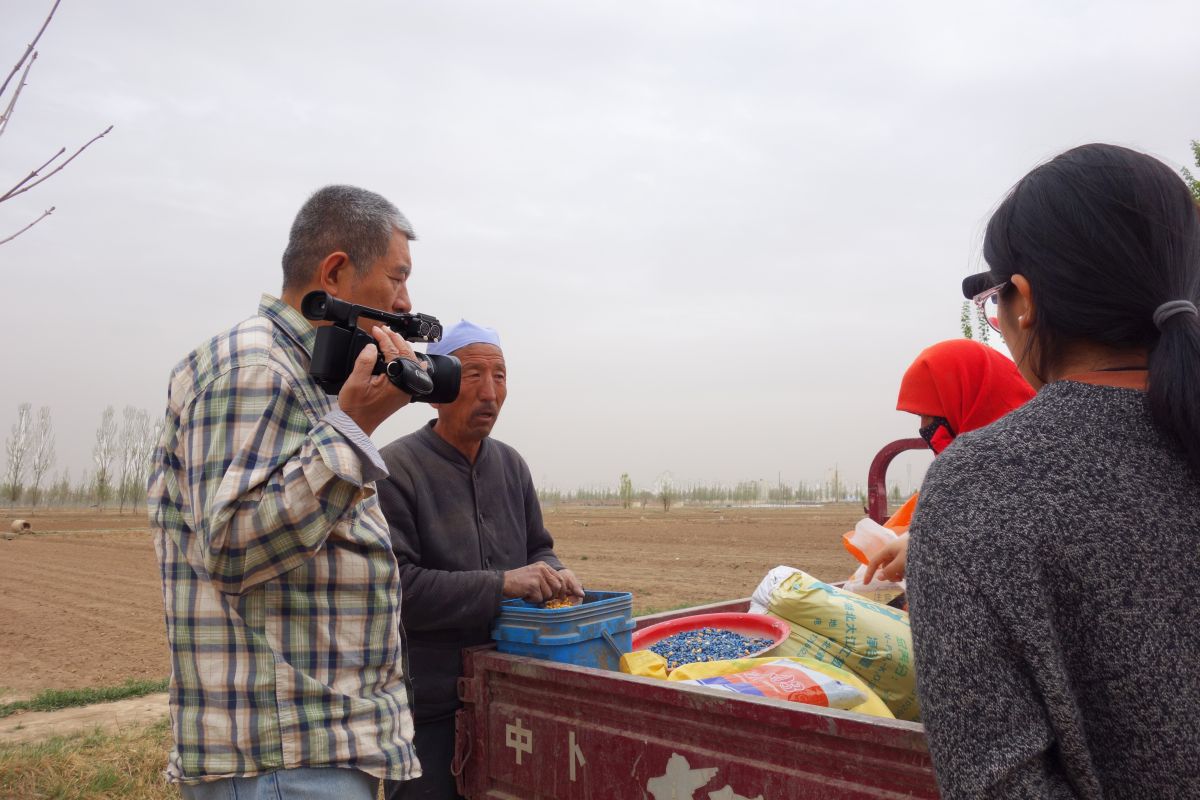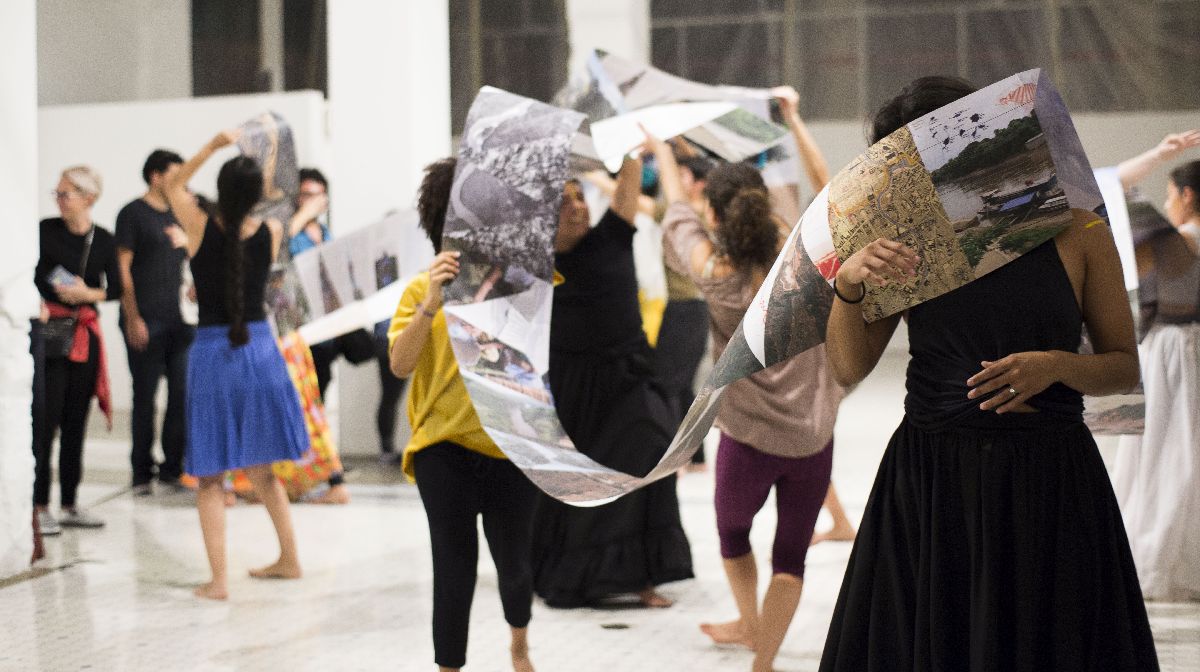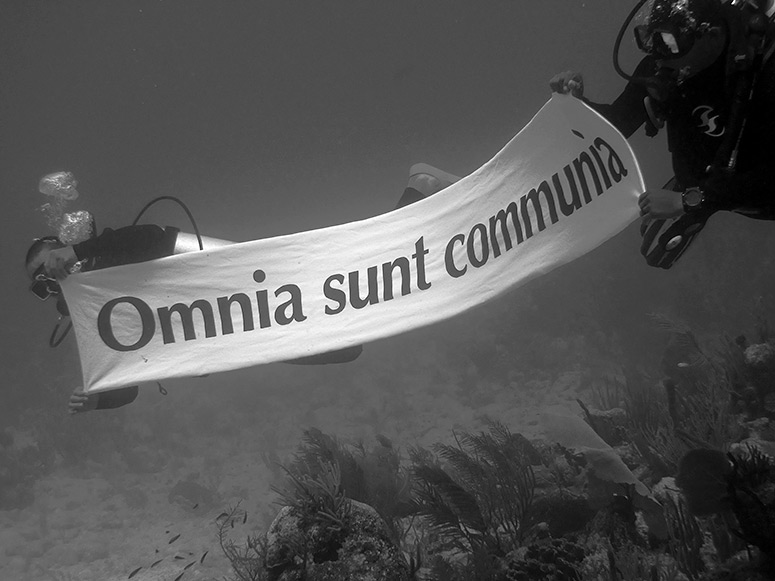
Attachment to Land. Aleksandra Jach in conversation with Xu Tan
- daadgalerie
- attachment to land
- Talk
08.02.2019 / 19:00 – 21:00
With Xu Tan
For several decades now, Chinese society has been going through a rapid modernization process. A formerly predominantly agricultural country has become a global leader in urbanization and industrialization. As a result of this millions of people have migrated from rural areas to industrial centers. They abandoned their traditional way of life, learnt other skills and created new communities. These conditions inevitably led to a fundamental disruption of their attachment to the land.
In this talk with the artist Xu Tan we will be taking a close look at the challenges that confront Chinese farmers as they are forced to follow the logic of globalization. We will focus on such questions as how they see recent changes in land ownership, food production and environmental pollution. We will discuss the idea of a land ethic based on crop production, breeding, grazing, soil cultivation and harvesting. Xu Tan has been talking to Chinese farmers from different parts of the country for several decades. His working method, which he himself refers to as “Searching for Keywords”, consists in creating a list of recurrent terms distilled from various interviews and a precise description of their meaning. Xu Tan analyses not only the language of his interviewees, but also the point of view from which they tell their stories. He makes use of ethnographic methods to create an audio and visual archive of the collective consciousness of Chinese society. Xu Tan is interested in patterns of communication that have been handed down from generation to generation and allow a more careful look at the processes behind emerging new meanings of nature, land, agriculture and freedom.
This series of events is centered around the question of the land. In the years to come, migrant flows will only increase as a result of climate change. People are being forced to leave their lands by the extreme weather conditions as well as the extractivist politics of governments and corporations. Those who do stay have to make up new ways of living and acts of resistance. But how this can be done is neither from a global perspective in the form of post-national institutional bodies, nor as a return to nation-state politics and ethnic roots: none of the existing models can provide a solution for planetary challenges. Climate change is not an abstraction, but a material phenomenon which wipes out any walls or borders trying to prevent the flows of people.
This is why the question of land needs to be disjointed from inoperative modern categories and economies, and instead thought through material-spiritual practices of everyday life. The artists invited to this series will touch upon alternative ways of attachment to land; they draw from their personal experiences or collective alliances with the human and the beyond human. The artists claim the conditions of belonging somewhere and the rights to not being dispossessed. Just as they consider the danger of biologically constructed identities and the pressures placed on groups who choose not to adapt to hyper-modernization.
With respect for their diverse points of view, what these artists are seen to have in common is the act of thinking about a terrestrial level of existence. These often very subtle gestures, actions, and imaginaries offer a manifestation of a land ethic that is tangible, relational, and, on some level, universal. If politics starts with identifying a territory, the invited artists encourage us to think about new ways of defining shared spaces.
Xu Tan was born in Wuhan, Hubei Province, in 1957 and currently lives in Shenzen and Guangzhou. Xu attended the Guangzhou Academy of Fine Arts, where he received his B.A. in 1983 and his M.A. degree in Oil Painting in 1989. In 1993 Xu became a member of the Big Tail Elephant Group, participating in the group’s exhibitions from 1992 to 1996 in Guangzhou, and in 1998 in Bern.
Xu Tan was awarded a fellowship by the Asian Cultural Council (Rockefeller Foundation), New York, in 2002, and a fellowship by DAAD, Berlin, Germany, in 2004.
His most recent projects include: Cities Grow in Difference: Bi-City Biennale of Urbanism /Architecture VII, Shenzen, 2018; Art and China after 1989: Theater of the World, Guggenheim NYC, 2018; Canton Express: M+ Pavilion, Hong Kong, 2017; Linguistic Pavilion, Minsheng Art Museum, Shanghai, 2016; Parasophia: Kyoto International Festival of Contemporary Culture, Kyoto, 2015; The past, the present, the possible, Sharjah Biennial 12, 2015; How to talk with birds, trees, fish, shells, snakes, bulls and lions …Hamburger Bahnhof Berlin, 2018.
A Series of Events with Agnieszka Brzeżańska, Carolina Caycedo, Ewa Ciepielewska, Aleksandra Jach, Xu Tan u.a.
Photo: Xu Tan, documentary material, 2018



